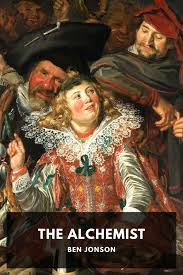Write in brief about Chaucer or Edmund Spencer or Ben Jonson or Francis Bacon or on any one of their works
Brief about Ben Jonson and his works
“There was never a great genius without a touch of madness.” ...
LIFE
Ben Jonson was born in c.11 june 1572 in westminster in England and died in c.16 august 1637 at London,England. Ben Jonson was an English playwright and poet. Jonson's artistry exerted a lasting influence upon English poetry and stage comedy. He popularised the comedy of humours. He is best known for the satirical plays every man in his Humour (1598) , Volpone or The Fox(c.1606),The Alchemist(1610) and Bartholomew Fair(1614) and for his lyric and epigrammatic poetry.
"He is generally regarded as the second most important English dramatist,after William Shakespeare, during the reign of James 1 ."
On leaving Westminster School,Jonson was to have attended the university of Cambrige. to continue his book learning but did not, because of his unwilled apprenticeship to his bricklayer stepfather.According to the churchman and historian Thomas Fuller(1608-61). Jonson at this time built a garden wall in Liccoln's inn.After having been an apprentice bricklayer,Ben Jonson went to the Netharland and volunteered to soldier with the English regiments of Francis vere(1560-1609) in Flanders.
works
The Alchemist is one of Ben Jonson's four great comedies. The earliest recorded performance of the play occurred in Oxford in 1610. It was also entered into the Stationers' Register in this year, though it might have been written and performed...
Cynthia's Revels
Cynthia’s Revels is an allegorical comedy written by Ben Jonson. First performed in 1600, it was published in printed form the next year. The work is an example of plays produced as part of the War of the Theaters. The theaters in question were...
Every Man in his Humour
Of Jonson's works, the satires are some of his most well-known. Every Man in His Humour was written in 1598 and was the first of his many "humour plays." Following Every Man in His Humour was a sequel, Every Man Out of His Humour. Though the first..
Bartholomew Fair
Interestingly, the very first performance of Ben Jonson’s Bartholomew Fair was on Halloween. Of course, it is imperative to realize that Halloween wasn’t the same in 1614 as it is today. Even so, Ben Jonson—who briefly enjoyed stature as a..
Epicene, or the Silent Woman
Epicœne, or The Silent Woman, commonly referred to now simply as Epicene, is a comedy by early modern English playwright Ben Jonson. It was originally performed in 1609 by The Blackfriars Children but did not become popular until many years later,..
The Masque of Blackness
As part of his 1605 commission to produce and entertainment for the Twelfth Night celebration, Ben Jonson, working in close collaboration with noted architect Inigo Jones as the scenic designer, produced the Masque of Blackness. King James...
Volpone was published first in 1607 as a quarto and then in 1616 as part of Jonson's collected Workes. In the later edition, the date of the first performance of Volpone is listed as 1605. However, many scholars speculate that the first..
The Alchemist
The Alchemist, comedy in five acts by Ben Jonson, performed in 1610 and published in 1612. The play concerns the turmoil of deception that ensues when Lovewit leaves his London house in the care of his scheming servant, Face. With the aid of a fraudulent alchemist named Subtle and his companion, Dol Common, Face sets about dispensing spurious charms and services to a steady stream of dupes. These include the intemperate knight Sir Epicure Mammon, the pretentious Puritans Ananias and Tribulation Wholesome, the ambitious tobacconist Abel Drugger, the gamester law clerk Dapper, and the parvenu Kastril with his widowed sister, Pliant. The shrewd gambler Surly nearly exposes the sham by posing as a Spanish don seeking the hand of Pliant, but the gullible parties reject his accusations. When Lovewit reappears without warning, Subtle and Dol flee the scene, leaving Face to make peace by arranging the marriage of his master to the beautiful and wealthy Dame Pliant.







No comments:
Post a Comment